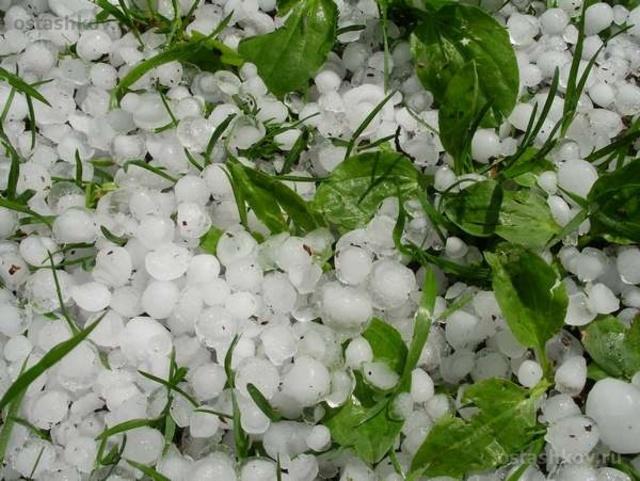


ArmInfo. The Central Bank of Armenia is currently studying the credit lines of farmers affected by the hail to determine the grace period for repayment of principal payments. The possibility of providing the villagers with a grace period for payments for land and water is considered in the Ministry of Territorial Administration and Development. The Minister of Agriculture of Armenia, Ignaty Arakelyan, told journalists on June 29 after the meeting of the government.
Asked whether compensation will be given to the communities affected by the hail, Arakelyan answered with a question: "Has Armenia ever had such compensation?" Financial damage in agriculture or lost profits due to natural and climatic conditions for 2016, according to Arakelyan, is estimated at 32-36 billion AMD. "Consequently, until the insurance system is introduced in Armenia, there will be no opportunity to compensate. There will also be no opportunity to talk about a more comfortable life for farmers," the minister said.
As previously reported, ArmInfo starts a pilot program of agricultural insurance and installation of anti-hail networks in Armenia in 2018. "We hope that within 2-3 years the Armenian economy will reach the level necessary for the formation on the market of the corresponding effective demand for the full implementation of programs, otherwise it will be necessary to find mechanisms for the implementation of these programs, since without them it will be impossible to provide the solution of the tasks of the sphere," Armenian Minister of Agriculture Ignaty Arakelyan stated after the government meeting on June 15, commenting on the ways of assisting the villagers to eliminate the consequences of the damage caused by the strong wind, rain and hail.
To note, talk about the fact that the introduction of agricultural insurance has no alternative and can be the only working life-circle for an Armenian farmer responsible for the sphere has been exaggerating for more than 10-15 years. The last time the topic was returned in December 2016, when the German Development Bank KfW stated that in order to conduct research in the direction of introducing the institute of agricultural insurance in Armenia will provide 1 million EUR. Meanwhile, as early as March 2011, former Prime Minister Tigran Sargsyan stated that the introduction of agricultural insurance in Armenia is inexpedient, since the agro-industrial sector of Armenia consists mainly of small peasant farms, and farmers are not able to pay insurance premiums. Nevertheless, KfW then allocated 400 thousand EUR for the development of the concept of agricultural insurance for Armenia and Georgia. Interestingly, the results of this work, which KfW entrusted to hold one of the "close" international consulting companies to itself, the participants of the insurance market of Armenia did not see. The Ministry of Agriculture then informed ArmInfo that they are also unfamiliar with the results of these studies. The KfW office in Yerevan refused to meet with ArmInfo on this issue.
Meanwhile, at the end of 2014, ex-Minister of Agriculture Sergo Karapetyan stated that in 2015 the Ministry together with the insurance company "Ingo-Armenia" plans to implement a pilot project on insurance of cattle in Vayots Dzor region of the country, the inventory of cattle was completed in this region. But already in November 2015, the executive director of INGO Armenia insurance company Levon Altunyan, now the head of the Ministry of Health, told ArmInfo that the program on agricultural insurance in the company is closed. "Agriculture, especially Armenian, has a very high loss ratio and is caused by several factors: first, the concentration of all risks in a small area, and secondly, the exposure to virtually all existing risks - floods, frosts, hail, landslides. In this case, should be of a semi-obligatory nature, so that at least 30-50% of farms are insured, otherwise it is unreasonable," the insurer explained. According to him, the company will return to this topic, "when in this type of activity there will be an element of commerce and economically sound activity, otherwise it is an occupation that research institutes should engage in."